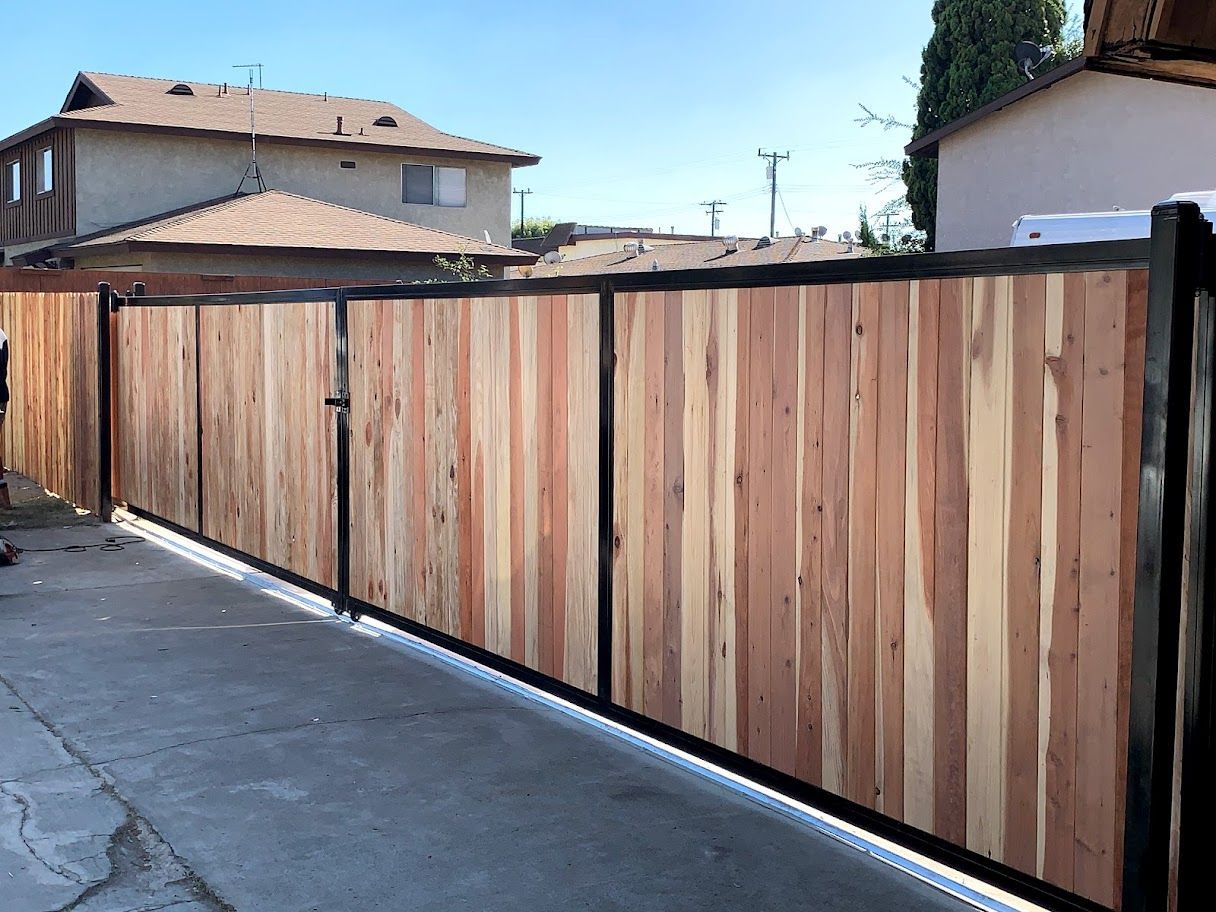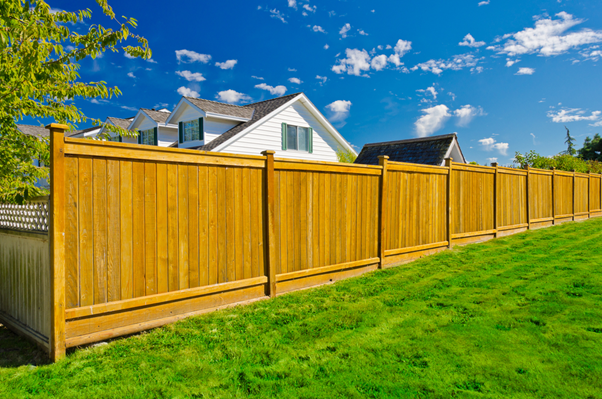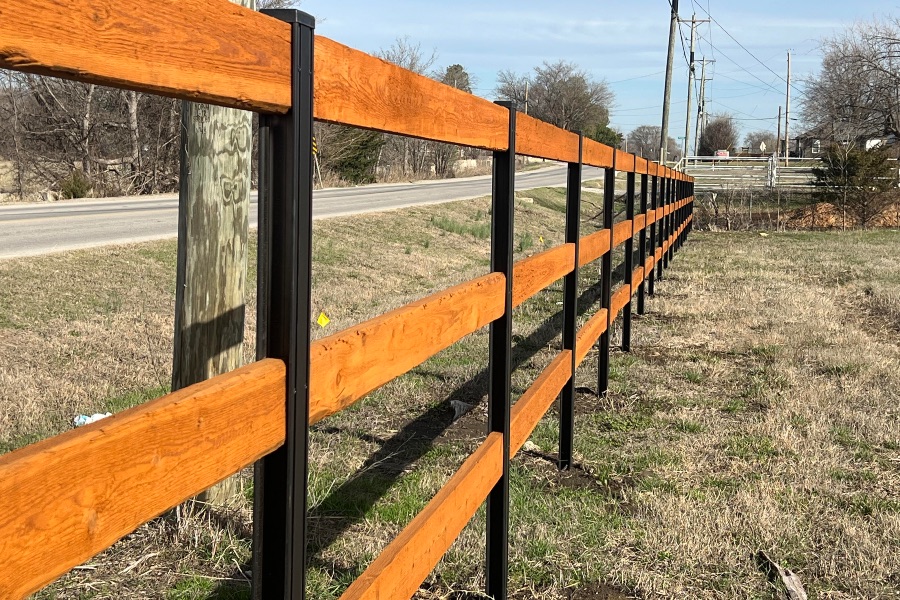All Categories
Featured

As sustainability ends up being a progressively important consideration for home owners, even more individuals are transforming to environment-friendly fence products. Whether you're building a fence for privacy, safety and security, or visual objectives, picking materials that lessen ecological impact is a great way to add to a much healthier world. Below's a check out the top environmentally friendly secure fencing materials readily available today and their advantages.
- Bamboo Secure Fencing: Fast-Growing and Eco-friendly. Bamboo is just one of one of the most sustainable fencing products on the marketplace. Unlike typical timber, bamboo is incredibly fast-growing, which suggests it can be gathered without diminishing woodlands. This makes it a very eco-friendly source, with some types growing up to three feet in a single day.
Environmental Benefits: Bamboo takes in more co2 than lots of other plants, helping to counter greenhouse gases. Its rapid growth rate implies it can be harvested consistently, making it a renewable product. Toughness: Bamboo fencings are normally immune to parasites and degeneration, especially when properly dealt with, reducing the need for chemical therapies. Visual Appeal: Bamboo provides a distinct, all-natural appearance that enhances both modern and typical landscaping layouts. Nevertheless, while bamboo is a terrific choice, it is very important to ensure that the bamboo made use of is properly sourced to avoid adding to environmental destruction.
- Recycled Metal Fencing: Resilient and Reusable. Recycled steel fence, such as light weight aluminum or steel, supplies a green choice to typical wood fencings. These metals are commonly made from recycled products, reducing the need for brand-new mining and the ecological impact related to removing raw products.

Environmental Benefits: Metals like light weight aluminum and steel are 100% recyclable, meaning they can be reused and repurposed indefinitely without losing high quality. Sturdiness: Steel fences are exceptionally sturdy, immune to weather, parasites, and put on, making them a durable option that doesn't require to be replaced often. Low Maintenance: Recycled steel fences require very little upkeep and don't require to be repainted or secured on a regular basis, minimizing the need for extra chemicals. The major downside is that metal fencings may not provide the exact same privacy as timber or vinyl alternatives, as they can have voids relying on the design.
- Recycled Timber Secure Fencing: Lasting and Natural. For those that enjoy the classic look of timber yet desire an eco-friendly choice, recycled wood secure fencing is an excellent selection. This material is made from recovered timber from old structures, pallets, or even furnishings, diverting these materials from land fills.
Ecological Benefits: Using recycled wood avoids the demand to reduce new trees, helping to lower and preserve woodlands logging. Aesthetic Appeal: Recycled timber provides a rustic, natural look and can be personalized to match any type of home design. Sustainability: Since it is sourced from existing wood items, recycled timber does not call for brand-new processing, which reduces power consumption and carbon exhausts. While recycled wood fences are a green choice, they may require more upkeep gradually than metal or bamboo fencings, as timber can be susceptible to decay and parasites if not appropriately dealt with.

- Living Fences: All-natural and Environment-friendly. Living fences, which are made from dense growings like hedges, trees, or bushes, offer a environmentally friendly and entirely all-natural alternative to traditional fence materials. These fences not only provide privacy yet likewise boost your garden with lovely plant.
Ecological Benefits: Living fencings can take in carbon dioxide, supply habitat for wild animals, and boost air quality. Sound Decrease: Thick growings can serve as all-natural sound obstacles, lowering traffic sound or various other unwanted audios. Visual Charm: They add a soft, all-natural aesthetic to any kind of property and can be customized to fit any design. While living fencings are environmentally friendly, they do require regular upkeep such as pruning, watering, and in some cases pest control.
- Hemp Secure Fencing: Naturally Degradable and Solid. Hemp is one more sustainable product that has made its means into the fence industry. Hemp fencings are made from strong hemp fibers that are woven together to produce environmentally friendly and long lasting panels.
Environmental Advantages: Hemp expands quickly and needs very little water, making it a resource-efficient plant. The material is eco-friendly and can be composted when no more required. Toughness and Resilience: Hemp fencing is surprisingly strong and weather-resistant, making it ideal for many climates. Sustainability: Hemp farming calls for fewer chemicals and fertilizers than typical crops, making it an ecologically responsible alternative. However, hemp fence may not be as extensively readily available as various other products, depending on your place.
Verdict: Lasting Options for each Need. Selecting environmentally friendly secure fencing materials is a wonderful method to decrease your ecological impact while still achieving the privacy, safety, and aesthetic you desire. From fast-growing bamboo to recycled wood and steel, there are a selection of sustainable options that can aid you create a gorgeous, useful fence while supporting a healthier earth. By taking into consideration aspects such as toughness, maintenance, and environmental influence, you can pick the very best environment-friendly secure fencing product for your needs and lifestyle.
Latest Posts
Create a Safe and Beautiful Boundary with Washington Fence
Published Feb 22, 25
1 min read
Enhance Your Residential or Commercial Space with Expert Fencing
Published Feb 20, 25
1 min read
Easy Treatment, Long-Lasting Results-- Maintain Your Bathroom Fitter Products!
Published Feb 20, 25
4 min read
More
Latest Posts
Create a Safe and Beautiful Boundary with Washington Fence
Published Feb 22, 25
1 min read
Enhance Your Residential or Commercial Space with Expert Fencing
Published Feb 20, 25
1 min read
Easy Treatment, Long-Lasting Results-- Maintain Your Bathroom Fitter Products!
Published Feb 20, 25
4 min read